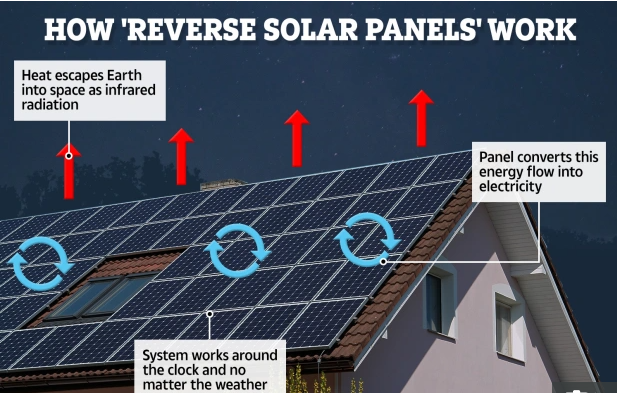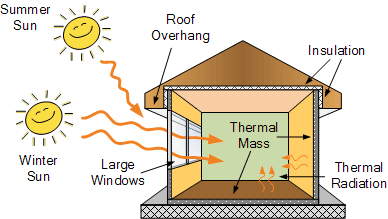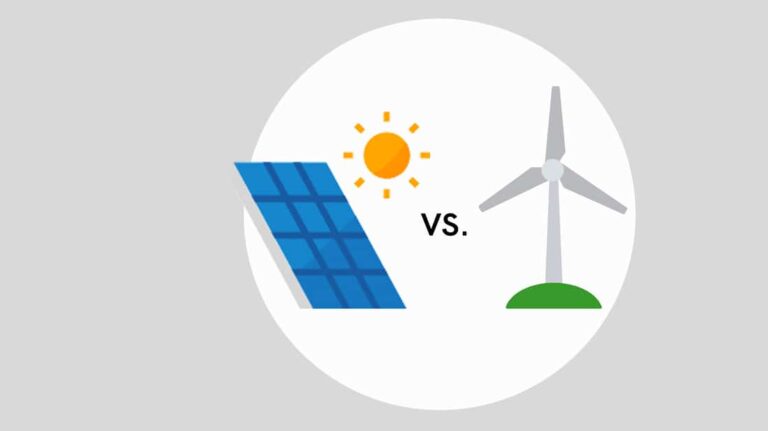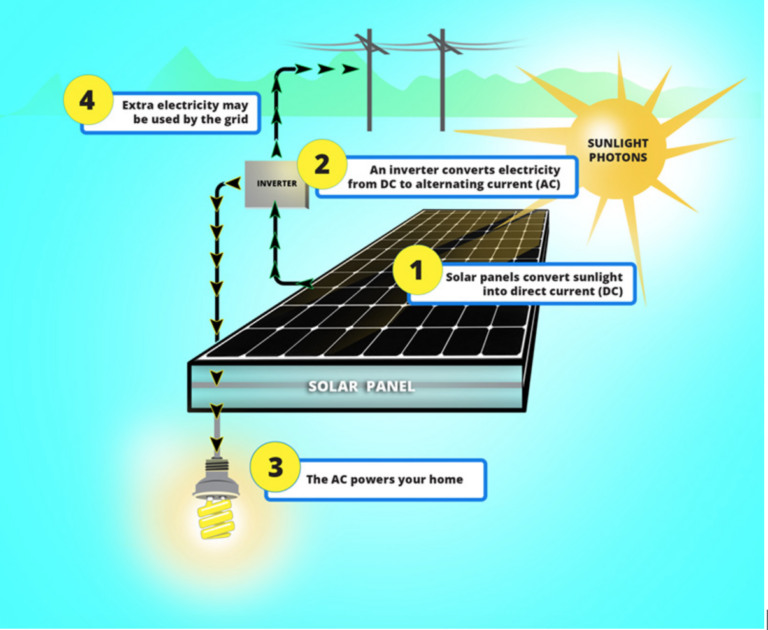Do Solar Panels Store Energy For Night Use?
Picture this: you’re lying in bed on a cozy evening, enjoying the soothing darkness. But as your mind drifts towards the practical, you wonder, “Do solar panels store energy for night use?” It’s a fascinating question that many people have, especially as renewable energy becomes more prevalent. In this article, we’ll uncover the answer and share some illuminating insights into solar power.
Now, let’s shed some light on the topic. Solar panels are indeed a remarkable source of energy, harnessing the power of the sun to generate electricity. But when the sun goes down and the world slips into darkness, what happens to all that energy? Do the solar panels store it for night use? Well, the answer isn’t as simple as flipping a switch, but fear not – we’ll break it down for you in a way that’s easy to understand.
So, join us on this enlightening journey as we explore the inner workings of solar panels and discover if they have nocturnal superpowers. Get ready to uncover the secrets and surprises of solar energy, and find out if the sun’s power can truly last through the darkest of nights. Let’s dive in and shed some light on the question, “Do solar panels store energy for night use?”

Do Solar Panels Store Energy for Night Use?
Solar panels have become a popular choice for homeowners looking to reduce their carbon footprint and save on electricity bills. However, one common question that arises is whether solar panels have the capability to store energy for nighttime use. In this article, we will delve into the functionality of solar panels and explore the mechanisms behind storing solar energy for night use.
How Solar Panels Work
Solar panels, also known as photovoltaic (PV) panels, harness the power of sunlight to generate electricity. The panels consist of numerous solar cells, typically made of silicon, that absorb sunlight and convert it into direct current (DC) electricity. This process is known as the photovoltaic effect.
The solar cells are connected with wiring, forming an array that generates a consistent flow of electricity. However, the electricity produced by solar panels is in the form of DC, which is not compatible with most household appliances that operate on alternating current (AC). To make the electricity usable for homes, an inverter is employed to convert DC into AC electricity.
Grid-Tied Systems and Net Metering
One of the primary ways that solar panels provide electricity for night use is through grid-tied systems paired with net metering. In a grid-tied system, solar panels are connected to the local utility grid. When the panels produce more electricity than is immediately used, the excess is sent back to the grid.
Net metering allows homeowners to receive energy credits for the excess electricity they contribute to the grid. During the night or times when the solar panels are not producing enough electricity, homeowners can draw from the grid, using the credits accumulated during the day. Essentially, net metering acts as a virtual energy storage system, allowing homeowners to offset their energy consumption during times of low or no solar production.
Battery Storage Systems
While grid-tied systems with net metering are an effective way to utilize solar energy for night use, some homeowners may desire more independence from the grid. In such cases, battery storage systems offer a solution. These systems consist of rechargeable batteries that store excess energy produced by the solar panels during the day for use at night.
When the panels generate more electricity than is needed, the excess is stored in the batteries instead of being sent back to the grid. At night or during periods of low solar production, the stored energy is drawn from the batteries to power the home. Battery storage systems provide a self-sustaining solution, reducing reliance on the grid and enabling continuous power supply even during outages.
Advantages of Solar Energy Storage
There are several advantages to storing solar energy for night use. Firstly, it allows homeowners to maximize their solar panel investment by utilizing the electricity they generate throughout the day when the panels are most productive. By storing excess energy, homeowners can also reduce their reliance on the grid and potentially lower their electricity bills.
Additionally, having the ability to store solar energy provides resilience during power outages. Homes equipped with battery storage systems can continue to operate essential appliances and have access to power, even when the grid is down. This can be particularly valuable in areas prone to natural disasters or frequent electricity disruptions.
Considerations and Challenges
While solar panel systems with energy storage offer numerous benefits, there are considerations and challenges to be aware of. Firstly, the cost of installing a battery storage system can be significant. However, as technology improves and more manufacturers enter the market, prices are gradually decreasing, making battery storage more accessible.
Another consideration is the capacity of the battery. Depending on the energy needs of the household, the battery capacity should be appropriately sized to ensure sufficient power supply throughout the night. It’s important to consult with a qualified solar installer to determine the optimal battery capacity for individual requirements.
Additionally, the efficiency of the overall system should be considered. Factors such as shading, temperature, and system design can impact the performance of solar panels and energy storage. Proper installation and regular maintenance are essential to ensure the system operates optimally and provides reliable power.
The Future of Solar Energy Storage
As interest in renewable energy grows, so does the research and development of advanced solar energy storage solutions. Scientists and engineers are constantly seeking ways to improve battery technology, increase storage capacity, and reduce costs. Innovations such as flow batteries, solid-state batteries, and new materials hold great promise for the future of solar energy storage.
In conclusion, while solar panels themselves do not store energy for night use, solar energy can be stored through different methods such as grid-tied systems with net metering and battery storage systems. These solutions allow homeowners to make the most of their solar panel investment and reduce their reliance on the grid. With ongoing advancements in technology, the future of solar energy storage looks promising, offering even more opportunities for sustainable and efficient energy use.
Key Takeaways: Do Solar Panels Store Energy for Night Use?
- Solar panels do not store energy for nighttime use on their own.
- During the day, solar panels generate electricity from sunlight.
- This electricity can be used immediately or stored in batteries for nighttime use.
- Battery systems called solar energy storage can store excess electricity produced during the day.
- At night, the stored energy in batteries is used to power homes and other devices.
Frequently Asked Questions
As the sun sets, many homeowners wonder if solar panels store energy for use during the night. We’ve put together a list of common questions to help demystify this topic and provide you with the answers you need.
1. How do solar panels work at night if they don’t store energy?
Solar panels do not store energy for night use. Instead, they generate electricity from sunlight and send it to the grid or your home’s electrical system. At night, when there is no sunlight, solar panels do not produce electricity. However, the excess energy generated during the day can be stored in a battery for use at night.
If you want to utilize solar power at night, you may need to consider adding a solar battery storage system to your setup. It collects and stores excess energy produced during the day, allowing you to use it when the sun goes down.
2. How does a solar battery storage system work?
A solar battery storage system stores excess energy produced by solar panels during the day. This stored energy is then used to power your home at night, when solar panels are not actively generating electricity. The battery acts as a reservoir, saving the surplus energy and making it available for your use when needed.
When sunlight hits the solar panels, it charges the battery with direct current (DC) electricity. An inverter converts this DC electricity into alternating current (AC), which is used to power your home’s appliances. If the battery is fully charged or there is limited energy generation, your home can draw electricity from the grid.
3. What are the advantages of having a solar battery storage system?
Having a solar battery storage system provides several benefits. Firstly, it allows you to use solar energy at night, reducing your reliance on the grid and potentially lowering your energy bills. Secondly, it provides a backup power source in case of a grid outage, ensuring your essential appliances stay running. Lastly, it allows you to maximize your solar investment by utilizing the excess energy your panels produce.
By using a solar battery storage system, you can also minimize your carbon footprint by relying less on energy generated from non-renewable sources. It enables you to harness more of the sun’s energy and reduce your dependence on fossil fuels.
4. How long can a solar battery power my home at night?
The duration a solar battery can power your home at night depends on various factors, including the capacity of the battery and your household’s energy consumption. On average, a fully charged solar battery can provide anywhere from a few hours to several days of power. It’s important to note that using energy-efficient appliances and practicing energy conservation can extend the battery’s duration.
If you find that your solar battery isn’t meeting your nighttime energy needs, it may be worth considering a larger capacity battery or adjusting your energy usage patterns for optimal efficiency.
5. Can solar panels work without a battery at night?
Yes, solar panels can still work without a battery at night, but they won’t directly power your home during those hours. In this case, your home would rely on electricity from the grid. When the sun rises the next day, solar panels will resume generating electricity and reduce your reliance on the grid once again.
While a solar battery storage system offers the advantage of using solar energy at night, it is not a requirement for solar panels to function. You can still benefit from solar power during daylight hours, saving money on your energy bills and reducing your environmental impact without a battery.
Summary
Solar panels cannot store energy for use at night like a battery does. They only generate electricity when the sun is shining. To have electricity during the night, you would need a battery connected to your solar panels to store the excess energy produced during the day.
However, even with a battery, it is important to remember that solar panels generate less electricity in cloudy weather. So, it’s a good idea to have a backup power source in case your solar panels don’t produce enough energy. Solar panels are still a great way to save money on your electricity bill and help the environment by using clean energy from the sun. Just remember, they can’t store energy for night use on their own!



